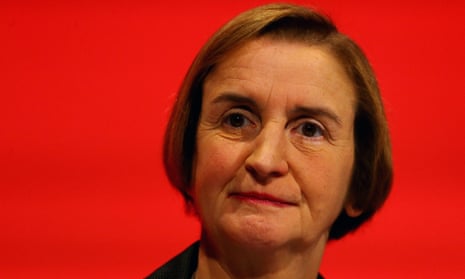Nia Griffith, the shadow defence secretary, has joined a growing list of MPs who have appeared to distance themselves from Jeremy Corbyn and strongly criticised Russia over the Salisbury poisonings that have left the former double agent Sergei Skripal and his daughter Yulia critically ill.
In an interview on BBC Radio 4’s Today programme, Griffith – who has criticised Corbyn’s stance on Russia in the past – was repeatedly asked to clarify Labour’s position. She insisted Labour supported the government’s actions, and “fully accepts that Russia is responsible”.
On Wednesday, Emily Thornberry the shadow foreign secretary, declared there was “prima facie evidence” against Russia, and supported all the measures announced by the government in response to it.
Both Griffith and Thornberry’s remarks go further than Corbyn’s words in the Commons in response to the prime minister’s declaration that the poisoning was an act of aggression by the Russian state.
In the Commons, the Labour leader strongly condemned the “utterly reckless” and “appalling” use of violence in Salisbury, but he appeared to question Theresa May’s statement that it could only have been the work of the Russian state. Instead he echoed the prime minister’s suggestion on Monday that it might have been negligence rather than a deliberate state act.
Later, his spokesman implied an equivalence between the flawed intelligence that led to the Iraq war and the interpretation of the evidence around the Salisbury attack. The briefing was reported in the Commons and provoked cries of “shame”.
Later, Corbyn posted on Facebook: “The Russian authorities must be held to account on the basis of the evidence and our response must be both decisive and proportionate.”
On the Today programme Griffith distanced herself from the briefing by Corbyn’s spokesman, and expressly backed the UK’s intelligence services and their expertise.
There will be concern that the influence of Corbyn’s spokesman, the former Guardian journalist Seumas Milne, could become a bigger story than the charge that Corbyn was reluctant to condemn Russia. Griffith was repeatedly asked whether Corbyn supported her position or the views attributed to Milne.
After a series of Labour backbench MPs including Yvette Cooper, Ben Bradshaw and Hilary Benn pointedly backed the government’s condemnation of Russia during Wednesday afternoon’s debate, rumours of resignations from the Labour frontbench began circulating.
Although there is a long history of disagreement over foreign policy between Corbyn and some of his MPs, this is the first serious row since Labour’s election result exceeded expectations last June.
On Wednesday a Commons motion “accepting the culpability of the Russian state” and backing the full range of the government’s reactions was tabled by John Woodcock, a longstanding critic of Corbyn. By early evening, it had been backed by 15 other MPs. Other MPs, including some on the front bench, have indicated their support without signing the motion.
Corbyn is not alone is wanting fuller evidence. The French president, Emmanuel Macron, has also asked for more. But in Foreign Office circles, it is accepted that France often takes a less sceptical view of Russian intentions than the UK or the US.
